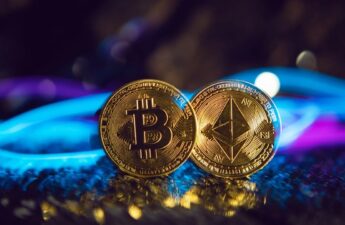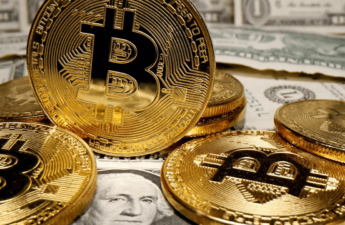The World Bank has said it expects the price of gold to rise by 3% in 2022 but warned the price might fall sharply if the Russian central bank decides to offload large quantities of the commodity.
The Russian Factor
After the price of gold surged past the $2,000 mark in early March, a new World Bank report now predicts the commodity’s value will only grow by just 3% in 2022. The bank, however, said it expects prices of commodities like food — which have risen by 84% — and crude oil to stay elevated for much of 2022.
While some gold supporters have predicted the price of the metal will likely hit a new all-time high, in its report, the World Bank is instead expecting a possible sharp price fall in 2023. The bank points to the possible offloading of large quantities of gold by Russia as one possible factor that will weigh down the price.
“In the longer term, gold prices could be affected by the Bank of Russia’s policies, and should it engage in large gold sales, prices could drop materially,” a report quoting the bank’s latest forecast document has said.
When Russia, which has been cut off from the global financial system, resorts to selling large quantities of gold as a way to raise funds, the resulting supply glut will likely cause the commodity’s price to drop.
In the meantime, some reports have suggested that Russia is considering the possibility of backing its currency with gold. While it’s not yet clear when this will likely happen, the prospect of a large country backing its currency with gold may well indicate the commodity’s price will likely rise further.
Return of the Gold Standard
The prospect of Russia returning to the gold standard has also reignited the debate about the feasibility and utility of gold-backed crypto tokens. Several such tokens have been issued yet only a few of these function. There are many reasons why some gold-backed crypto tokens have failed.
Therefore, in order to learn more about why some gold-backed crypto tokens have failed, what the future holds, and the prospect of Russia returning to the gold standard, Bitcoin.com. News sought the views of Tony Dobra, a 40-year veteran of the precious metals industry and a non-executive advisor at the fintech startup, Aurus. Below are Dobra’s written responses to questions sent to him via Linkedin.
Bitcoin.com News (BCN): Although gold has been on an upward trajectory since the start of the Ukraine-Russia war, the price has so far failed to break through the $2,100 mark despite predictions it may breach the $3,000. Do you believe gold will ever get to $3,000 per ounce in the next five years?
Tony Dobra (TD): Gold trading volumes are at an all-time high. The price is volatile, but under pressure at present. Forecasting prices is much like reading tea leaf dregs, or goats entrails; it is a parlor game, not a science. However, both what is now in bedded, rather than transitory inflation, plus the long term situation in Ukraine, should see gold through $2,100 later this year. After that, anything is possible. I would say $3,000 is more likely than not.
BCN: Does the resurgence of gold mean cryptocurrencies are now less attractive to investors?
TD: I think they are different markets, so should both attract investors. It’s good to have diversity. Is it wise to invest in products that are moving in parallel? What diversification does that achieve? I find that most big investors like a portfolio of un-correlated products.
BCN: Let’s talk about a digital token/currency that is backed by gold. We have seen a lot of gold-backed tokens but it’s fair to say a lot of these have failed. Do you know why these failed?
TD: There has been a whole diversity of these products; as you say, most have failed, but for many reasons. The two most common are that either they’ve been set up by digital experts without nuanced knowledge of the gold market, or conversely, by gold traders that don’t hire the right digital skillset. In both cases, seasoned investors smell out a lack of total expertise. This applies as much to young cryptocurrency investors as well as ultra-conservative old-school investors. It’s all about being comfortable with the product.
BCN: What are you doing differently that convinces your own token is going to succeed where others have failed?
TD: For a start, Aurus was founded by traders with digital skills and with enough knowledge to know their own limitations and the skill set to hire the best people with the correct skill sets and experience. It has created an Eco-system that is inclusive of all the elements of an efficient market, be that vaults, refiners, traders, investors, service providers and technical back-up.
More interestingly, professional traders make their money on volatility not just buying and selling, the more the price moves, regardless of direction, it generates supply and demand and therefore trading opportunities. Aurus used this knowledge to create the AWX token, which generates income for the holder by getting a smaller percentage of each transaction in the ecosystem. The greater the number of transactions, the greater the income and the greater the value of the AWX token.
BCN: Many influential figures have concluded that bitcoin is a digital form of gold while some have suggested that gold will lose its position as the most ideal alternative to fiat money even in uncertain times. Yet, as events over the past few weeks have shown us, gold is still seen as a safe-haven asset. Do you foresee a scenario where bitcoin actually topples gold to become the most sought after alternative store of value?
TD: Another ‘can you gaze in your crystal ball question’. I think in a perfect world, with no war, no crime, and no inflation, bitcoin (BTC) would be the currency of Utopia. However, in a world where people are being displaced and have no access to reliable power, where networks are getting hacked and sponsored by governments; a few gold coins have an advantage. Gold is the most basic form of trade after direct bartering. What is the immediate value of an iPhone with a flat battery in a shop with no power? People say that gold is a relic of history, but are we progressing to a more equal, plentiful, and peaceful world, or are we regressing to war and famine?
BCN: Some reports have suggested that Russia, which has been hit by sanctions, may back its own currency with gold. Do you think it’s possible for Russia to back its currency with gold?
TD: It’s not so much ‘possible,’ but probable. Like energy commodities, Russia is rich with precious metals too. Its now favored trading partners, China and India are the world’s two biggest buyers of gold, followed by their friend Turkey. Backing the ruble with gold will re-assure their new friends and create a non-U.S. dollar trading block.
Tags in this story
Aurus, Bank of Russia, Digital Currency, economics, gold, Gold-backed tokens, interview, russia sanctions, Russia Ukraine war, Tony Dobra, World Bank
What are your thoughts on this story? Tell us what you think in the comments section below.
![]()
Terence Zimwara
Image Credits: Shutterstock, Pixabay, Wiki Commons




